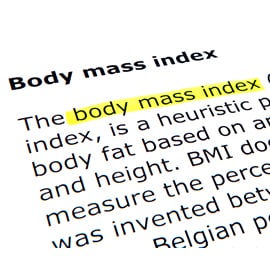
Bariatric surgery requires a serious commitment and is not an appropriate solution for those interested in casual weight loss. To be considered for bariatric surgery, you will need to meet several requirements that ensure a successful outcome for weight loss surgery.
Dr. Taylor and our medical staff will carefully evaluate your situation before determining if you are a candidate for bariatric surgery. Our medical team will make sure you feel comfortable with the safety and success rates of weight loss surgery before moving forward.
Determining Factors for Bariatric Surgery
These basic guidelines will help you determine if you qualify as a candidate for bariatric surgery.
The following lifestyle factors will be considered for qualification:
- Your age. Patients between the ages of 18 and 65 are the best candidates for bariatric surgery, though special permission can be granted in some cases if you are outside this age group.
- Your Body Mass Index (BMI). Suitable candidates will have a BMI of 40 or more OR a BMI between 35.5 and 39.9 AND obesity-related health problems. Though having a BMI of less than 35 does automatically exclude you from consideration, Dr. Taylor will need to determine suitability on a case-by-case basis.
- Your smoking and drug habits. Patients who do not smoke or drink alcohol excessively and do not take illicit drugs are generally good candidates.
- Your dieting history. Many insurance companies require documented history of failed attempts at medically supervised weight loss programs to qualify for policy coverage.
- Your commitment. Patients must be ready to commit to permanent lifestyle changes and regular follow-ups with medical professionals for a long period of time after surgery to ensure success.
Reasons You May Be Rejected for Surgery
Regrettably, not every person who desires bariatric surgery is a good candidate. Several factors may disqualify you from weight loss surgery.
Those factors include:
- If you are over the age of 65—although exceptions can be made.
- If you have a BMI of less than 35
- If you drink excessive amounts of alcohol or take illicit drugs.
- If you have pre-existing medical conditions that generate a high risk situation for surgery.
- If you suffer from a mental illness uncontrolled by medication.
- If you are currently being treated for cancer (you may be considered if your cancer is in remission).
- If you plan to become pregnant within the next 12 months.
If you think you are a suitable candidate for bariatric surgery, take some time to research the types of bariatric surgeries available to you and the advantages and disadvantages of each before finalizing your decision.
Suggested Reading
Bariatric Surgery Benefits Older Adults
Taking Supplements after Weight Loss Surgery
Considering a New Exercise Program? When to Check-In With Your Doctor First
Also In This Section
- Bariatric Surgery May Restore Monthly Cycles in Obese Women
- Bariatric Surgery May Prevent Heart-Related Incidents
- For Diabetes, Surgery a Better Option than Standard Treatment
- Help Cholesterol by Losing Weight
- Speaking With Your Physician May Enhance Your Weight Loss Efforts
- Improve Migraines with Weight Loss Surgery
- Flu Shot Less Effective for the Obese
- Benefits of Weight Loss before Bariatric Surgery
- Keep Up with Weight Loss
- Warm Up Your Body Even In Cold Weather
- Life after Weight Loss Surgery
- Health Risks Associated with Obesity
- Ten Reasons You Should Lose Weight
- Bariatric Surgery Can Help You to Fight Obesity
- How to Begin Exercising After Gastric Bypass Surgery
- New Risk Calculator Assists Patients Considering Bariatric Surgery

